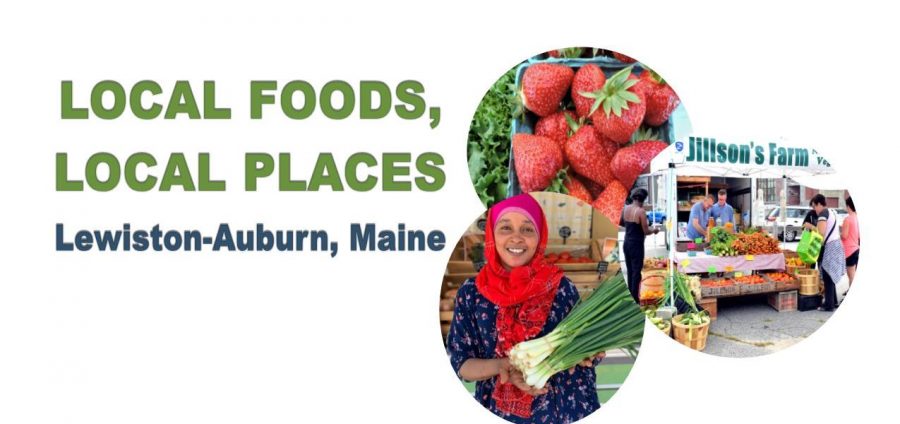Laying the Groundwork for a Community Food Center for Lewiston-Auburn

A few short weeks ago, the Lewiston/Auburn area Local Foods Local Places (LFLP) network unveiled their action plan for improving access to local foods, supporting farm businesses, and building a vibrant local food economy. The plan was the culmination of more than a year of work that began back in the summer of 2019, when local stakeholders came together to plan a series of EPA-sponsored community conversations about how to grow the local food economy. I was lucky enough to attend those conversations and hear from farmers, non-profit leaders, municipal officials, and residents of both Lewiston and Auburn as they shared their visions for the future of food in this area. One of the ideas that generated the most excitement was the possibility of creating a community food center in downtown Lewiston, where residents would have consistent access to the freshest local produce and meat, as well as kitchen space to cook for family or prepare value-added goods to sell.
As much enthusiasm as there was during those initial conversations for a community food center, the LFLP team knew they would need to get a better sense of whether that enthusiasm was shared more broadly and whether the community food center model was feasible. That’s where our Bates students came in to help. Professor Francis Eanes of the Environmental Studies department at Bates has been involved with the LFLP initiative from its earliest days, serving on the steering committee and on the action plan team; he also serves on the Good Food Council. As the instructor for the environmental studies community-engaged research capstone course, Francis supervised two students, Tamsin Stringer and Kate Loughlin, as they collaborated with staff from St. Mary’s Nutrition Center to conduct surveys of residents of Lewiston and Auburn to learn more about their potential interest in a community food center. They also researched community food centers in Canada and elsewhere in the United States to identify what has made them successful and sustainable.
Tamsin and Kate offered a terrific presentation to their partners on the LFLP action team that outlined their survey findings, which showed that there was significant excitement among survey participants about the idea of a community food center. A recording of their Zoom presentation is available here for anyone who would like to see their full results. Their findings also provided the basis for the presentation about the Community Food Center that was shared in the LFLP virtual launch party last week. There is much work to be done to make a Community Food Center a reality, but it was energizing to see a team of Bates students and their instructor playing an active role in bringing the vision to reality.